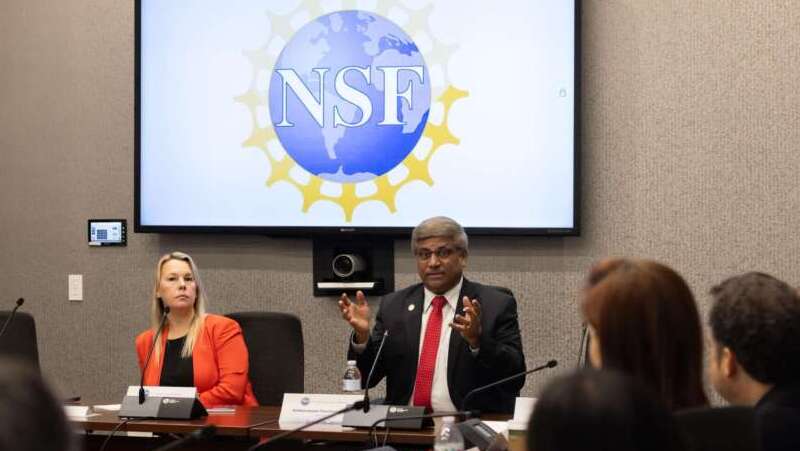
The U.S. National Science Foundation has awarded $35 million through its Established Program to Stimulate Competitive Research (EPSCoR) Research Incubators for STEM Excellence Research Infrastructure Improvement (E-RISE RII) to boost research competitiveness, build partnerships across sectors, and create workforce development.
E-RISE RII – created through the CHIPS and Science Act – is a new program that aims to develop and implement sustainable networks of diverse research teams to collaborate on “critical jurisdictional research priorities.”
“This investment from NSF’s E-RISE RII program powers scientific progress through broad networks of researchers, institutions, and organizations that will significantly enhance STEM research capacity in our EPSCoR jurisdictions,” NSF Director Sethuraman Panchanathan said in a June 27 statement. “We are investing in a future where EPSCoR jurisdictions are even more competitive in the scientific enterprise, both nationally and internationally.”
NSF said the networks will leverage their partnerships by developing innovative educational plans that address their jurisdictional priorities and help prepare a skilled technical workforce.
“They will broaden participation in science, technology, engineering, and mathematics by requiring the inclusion of members of traditionally underrepresented groups,” the agency said. “The teams aim to make sustainable improvements in science for the betterment and economic impact of their jurisdictions’ research and development enterprise.”
NSF awarded five universities upwards of $7 million for each of their projects.
The University of Maine was awarded $4.5 million to build strategic R&D capacity to “fuel the dramatic growth” of Maine’s forest-based economy and the rural communities it supports. NSF said the project’s framework will nurture adaptive community resilience and strengthen the capacity of rural and Indigenous communities to respond to current and future socio-ecological threats and opportunities.
The University of Mississippi was awarded $2.5 million to build capacity in the state for use-inspired R&D of advanced polymer materials and for addressing the scientific, engineering, and educational training needs of the nano- and biotechnology industries “at a time when these industries are experiencing unprecedented growth,” NSF said. According to the agency, the project proposes to create a robust pipeline for next-generation materials by fostering multidisciplinary research teams to iteratively design, synthesize, and characterize new materials, while evaluating their impact on delivery efficacy in relevant disease models.
South Dakota State University is leading a $5.6 million project to build sustainable capacity to leverage abundant atmospheric nitrogen gas and solar energy to create a commercially viable, solar-powered “bionitrogen economy” in South Dakota, relying in part on the knowledge and resources of Native communities about agricultural and medicinal Indigenous plants, NSF said. The project will promote workforce development by integrating K-12 outreach, undergraduate and graduate research programs, and partnering with tribal communities.
New Mexico State University was awarded $7 million to enhance the state’s competitive edge in the global manufacturing sector by establishing the groundwork for an advanced distributed intelligent additive manufacturing infrastructure. “The project will contribute to fundamental knowledge in advance manufacturing, cybersecurity, and machine learning while spurring economic growth in New Mexico and contributing to national efforts to onshore manufacturing,” NSF said. “The project will provide an integrated pathway for workforce development in additive manufacturing from middle school to doctoral and postdoctoral levels.”
Kentucky State University was awarded $7 million to establish an “unprecedented, cross-sector research incubator” to improve nutrient management, food safety, and sustainability of soilless agriculture in Kentucky, which will lead to more diverse and inclusive STEM research.
